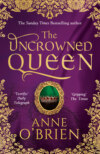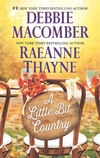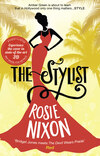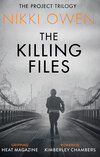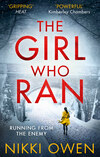Kitabı oku: «Subject 375», sayfa 4
‘…And of course,’ Dr Andersson is saying as I turn back, ‘I will be here when you need me to help you to adjust your…behaviour, your temperament. I know you are a long way from home, Maria, and—’
‘I would like to appeal.’
She falters then shakes her head. ‘All inmates at some point or another consider appealing. I can tell you now that there is no point. It is not accepted at Goldmouth.’ She stops. ‘Are you thinking you want to get to the truth? Hmmm? That people need to know the truth about you?’
She understands! I sit up, feel an unexpected surge of hope. ‘Yes! Yes.’
‘Well, that is pointless.’ My hope extinguishes. I drop my shoulders. Dr Andersson smiles. ‘You see, Maria, you must learn to live with your circumstances. To accept your guilt. That, Maria, is the real truth. The sooner you realise that the better, and your healing process can begin.’
The Governor sits forward. ‘Dr Andersson is right—to a point.’ He pours some water then leans back, the glass in his hand, thick, bronzed fingers, white, square nails. I look at his face. Is he messing with me, too? Playing mind games I don’t understand? ‘The theory is that the sooner you accept responsibility for your…actions, for your situation, the better it will be for you here at Goldmouth.’ He proffers a glass. ‘Thirsty?’
‘I am appealing,’ I say, ignoring the water, an anger building deep in my stomach.
He lowers the glass. ‘Why?’
‘Because I should not be here.’ My voice is low, a scrape on a barrel. ‘The priest found something out…‘ I falter as his face flickers in my mind. ‘There was nothing I could do.’
The Governor sits back, sets the glass on the desk. He can be no older than my father would be now, were he still alive. A flame of sadness burns inside me for a moment at the thought, then fades to an ember, but I can still feel its heat, its aching scorch.
‘My current counsel do not want me to appeal,’ I say after a moment, sitting up a little, trying to gain some composure, some control. ‘But I disagree with them. I therefore require new counsel.’
The Governor frowns. ‘A new barrister as well as an appeal?’ He exhales. ‘As Dr Andersson said, almost every prisoner who walks through these doors believes they have the right to appeal. Whether it is against their sentence or against their conviction. And now you say you want new counsel?’
‘Yes.’ I hold his gaze. I need to. I have to have this appeal. If I get out, I may find out what happened to him, to Father Reznik.
‘Look, Dr Mart—’ He stops, exhales, one long, heavy breath. Then he slips on a smile. ‘Maria, can I say something?’
‘Yes. You do not need my permission.’
He smiles. It touches his eyes. ‘When I was at Cambridge, I met a group of people who made me feel I could…make a difference. I think you could make a difference, too.’ He pauses. ‘And I can help you to do that.’
Dr Andersson sits up. ‘Balthus, what are you doing?’
‘Helping. That’s why we’re here, isn’t it?’ He levels her with a stare. ‘That’s why I recruited you, Lauren. To help. So do it.’ He checks his watch and stands, his frame filling the room.
I look to the Governor, unsure what is happening.
‘Tell you what, Maria, if you can get a barrister, we’ll support your appeal. How’s that?’
I open my mouth to speak but no words come out. He has just allowed an appeal. I ring my hands together, excitement bubbling underneath. I can appeal!
Dr Andersson sits forward. ‘Balthus, you can’t—’
‘I have another meeting,’ he says over her. ‘Maria, your new cellmate should be joining you tomorrow. Dr Andersson is assigned to work with you. She will be your therapist. Please, keep talking to her. Don’t alienate yourself out there. Socialise with the inmates—if you can. I know it’s hard. I’ve seen your file. I am of course here, as I am for all our inmates, should you require urgent assistance.’ He flashes some teeth. ‘Your profile is high; you have some adjusting to do. So use me, talk to me.’ He rests his palms on the chair. ‘At Goldmouth, we are all about rehabilitation.’
A guard enters and instructs me to stand, and as I do I stumble a little, confused at this man, this Governor. His familiarity, his smile, his help. His…his eyes.
‘My new counsel,’ I manage to say to him. ‘What am I to do next?’
‘I’ll get a legal officer to look into it for you. Are you okay? You seem a little unsteady.’
‘Balthus,’ Dr Andersson says, ‘I don’t think—’
‘Lauren,’ he says, spinning round to her. ‘Drop it.’
We walk to the door in silence. I can smell him, the Governor, the burnt-wood trail of his cologne, the subtle scent of his sweat.
I turn to him. ‘Balthazar…your name. It means “God protect the King”. Balthazar was one of the kings who visited Jesus.’
He nods, slowly, his eyes drawing invisible trails on my face. An image of my father see-saws in front of me. Hot, cold. One man’s face into the other’s. I cannot look away. Dr Andersson clears her throat.
‘Okay, Martinez,’ the guard says, ‘time to go.’
Kurt sits very still and studies his notes.
The room feels hot again. I sip some water, fan my face, try to circulate some air, some breeze. It does not work. Replacing the glass, I scan the room. Everything is the same. Solid, real. The walls are there, the mirror, table, clock, carpet. It all exists just as it did before. All present, tangible.
But when my eyes reach Kurt, I hold my breath. He has moved, I swear he has moved. Instead of holding his notes, his palm now rests on the arm of the chair, and his eyes are directed at me. I stay very still, scared to stir, to draw attention to it. I do not know why, but my pulse is rising. I can sense it. The blood pumping in my neck.
Kurt’s mobile shrills. My lungs start to work again.
‘Excuse me,’ he says, and picks up his phone, puts it to his ear. He glances to me. ‘I have to take this outside. Please remain where you are.’
As he stands and exits the room, I tap my finger. Therapy is confusing. When to speak, when to be silent. Kurt’s control of the situation is so exact that I sometimes find myself wanting to slap his face to see if he will react, to see if he will hurt me, shout at me, to see if he can comprehend who I am or figure out if he can even tolerate me and my ways at all.
Drained, I reach for some more water then stop. My eyes flutter. One blink, two, clearing, focusing. There is something there, by the ceiling, something that wasn’t there before, I am certain. Slowly, I stand, squinting for a better view. There is an object, tiny, in the far corner of the room, by the cornicing. An object that, two minutes ago, did not exist. I close my eyes then open them again, wondering if I had imagined it, wondering if I really am, as I have been told, going mad. Yet, even when I do this, even when I shake my head, there it is.
A cobweb.
A single cobweb.
Chapter 6
‘Martinez,’ shouts a guard, ‘your new cellmate’s here.’
I have been sitting on my bed furiously writing in my notebook, fevered, obsessive. Two hours and forty-three minutes have passed, inscribing, shutting myself off from the world, from prison. It is my way of attempting to cope, adjust, to hide. My notebook is already dense with scratches and scrawls of numbers, of pictures, diagrams, outlines of floor plans I have recalled, phrases, messages that have floated like disembodied skulls in my head. My hand aches, my brain buzzes. None of it, when I look at it, when I read it back, makes sense, but I do not care. It is now all there, pressed into the page. The recording of it seems to spurt out in stages—codes, patterns, cryptic information, unusual encoded configurations. It all exists. Counted, documented. Yet, when I review it, when I scan all the detail, one thought scares me above everything else: I don’t ever recall having learnt any of it.
I set down the notepad, glance up and see her: the inmate with the studs on her tongue and the tattoo on her stomach. My body goes rigid, an alarm shrilling in my head, the urge to flee coursing through me.
‘This is Michaela Croft,’ the guard says, stepping inside. Michaela grins; I do not. Instead, I swallow, try to keep my hands from flapping.
The guard raises an eyebrow. ‘Well,’ she says before backing out, ‘I’ll leave you two to get …acquainted.’
I glance to my bed, panic. My notebook. Where did I place my notebook?
Michaela pushes past me. ‘I’m taking a leak.’
My pillow. There. My notebook peeks from under it. I allow myself to exhale then slip it out of sight, fast, silent.
A flush sounds. ‘Well,’ says Michaela, zipping her fly with one hand and wiping her nose with the other, ‘ain’t this nice?’
She flops to her bed. ‘You do him then, the priest?’
The trouble is, while she asks me this, while I am a little frightened of her, all I can think is that she hasn’t washed her hands. ‘There is soap,’ I say. I can’t help it.
‘Huh?’
‘After using the toilet,’ I continue, ‘a hand can contain over two hundred million bacteria per square inch. You did not wash your hands. There is soap.’
She stares at me, blinking, fists clenched, and I know I am in trouble. I sit, a coiled spring, waiting for her to hit me, claw me, but then, just like that, she shakes her head, says, ‘Jesus fuck,’ and lies down on her bed.
I watch her. The piercings on her ears have gone. Six puncture marks remain.
She yawns, wide, cavernous, the mouth of a lion. ‘All over the papers you was,’ she says. ‘Doctor Death, they called you, that right? You killed a priest! Ha! You hard fucker.’ She slips her palms behind her head. ‘I don’t bloody know why. I mean look at you…You’d hardly scare a kitten, never mind a sodding priest. You’re like some little pixie.’
The ceiling light flickers, making me jump. ‘I have never scared a kitten.’
‘You what?’
I stand, pace, lift my palms to my skull and knead my forehead. She is too noisy. Too noisy. ‘I do not belong here,’ I say, because I do not. I do not know where I belong any more.
‘What? You’re innocent?’ She laughs, a cackle, a lash of a whip. ‘That’s what they all say. Everyone’s innocent, la, la, la.’ She swings her legs over her bed, stands and prowls over to me. ‘Sit.’
I do not move.
‘I said sit.’ She pushes me to the bed and slides beside me. Anxious now, I flap my hand. The edge of my fingers hit her thigh.
‘Hey! What the fuck?’ She grabs my fingers, squeezing them. I feel a sudden, confusing urge to whip my hand out, jab her clean in the neck.
‘You have to understand something,’ she says to my face, her spit and hot breath on my skin, ‘they all say they’re innocent, and they’re all shooting for another taste of freedom; but what they don’t realise is this—is—it. Here. This place. No one gets out.’ She releases my fingers; I rub them. ‘And while you’re in here, something to remember.’ She whispers to my ear. ‘I’m in charge. Got it?’
She stands and jumps onto her bed. ‘Now,’ she says, resting her palms behind her head, ‘be a dear and turn off the chat. I need my beauty sleep.’
I find that I am too weary to respond.
Over an hour has passed.
I have been sitting on my bed with my notepad. Snoring, Michaela opens her mouth and groans. When she rolls to the wall, I return to my notes. I have been writing, furiously, urgently. Trial details, evidence, memories, schedules, anything and everything I think will help in an appeal, help to secure new counsel. It is my attempt at routine, at making something happen, at making my appeal become a reality. I have written about the priest, about what he discovered when I was volunteering at the convent, the paper trail that led nowhere, figuring that if I transcribe it, if I put it in black and white, I won’t forget. I won’t forget what he did for me—and what information I need to find out is where Father Reznik really went. Who he really was.
I carry on writing, absorbed in it, so waist deep in its waters that when she awakes, when she growls back to life, I do not, at first, realise.
‘What fucking time is it?’
My head shoots up, my hand instantly flinging the pad behind me.
‘I said what time is it? Were you writing?’
She rubs her eyes. I slip the notebook into my underwear. ‘I was…sitting on the bed.’
She blinks, focuses back on me. ‘You’re just fucking weird.’
For some reason, over the next ten minutes, Michaela talks. I don’t know what I am supposed to do. Listen? Answer back? Laugh? Smile? I am paralysed by the choices. The more she awakens, the more she reveals: a lover, life, parents. And all the while the corner of the notebook digs into my skin; I want to move it, but cannot. Her eyes are on me the entire time.
‘So, you Spanish, huh?’
‘Yes. I told you when we met.’ She should already know this. Normal people seem to recall very little information.
‘All right, smart fucking arse.’ She sighs. ‘I like Spain. We nearly moved out there, you know, me and my man. Then I got mixed up in some drugs bollocks and he met that cow and well…’
I move the notebook. A millimetre, that is all, but it is like pulling a thorn out of my flesh.
‘…And so I killed her, I killed his bit on the side. Ha, Jesus. That’ll serve him right for messing with me.’
When she pauses, I take it as a cue to speak. So I say, ‘Killed his bit on the side,’ because I have learnt that repeating what people say can make them believe I am conversing with them. Talking with them. Not at them. Either way, it’s all pretend.
She narrows her eyes at me. I go still again. ‘What is it with you, hey? Why do you always sound like a fucking robot? You don’t say much. And then when you do…’ She throws up a hand. ‘You just sit there, still as a bloody wall.’ She stands. Her face is suddenly flushed, contorted, and she stalks towards me, rolls her thick, tattooed shoulders. ‘Who are you, hey?’
I cannot help it. The words tumble out. ‘I am Dr Maria Martinez. Have you already forgotten?’ I try to smile, maybe that will help. It doesn’t.
Her eyes go wide like two marbles in her head, two perfect storms.
I try something else. ‘You asked me my name. I wondered if perhaps you had temporary memory loss. Prison could do that.’ I try a laugh, that’s what people sometimes do. A bit of teeth.
‘What the fuck are you doing?’
I scan my brain. Is she cross? So, I drop the laugh, recall what a concerned face may look like and attempt to replicate that. ‘Women in prison are five times more likely to have mental health issues compared to the general population. In the UK.’
‘What the—’ She wipes spit from her mouth. ‘Are you saying I’m mental?’
‘No, I—’
‘You what? You fucking what?’
She leans forward, then suddenly—before I can move, think, assess—she knocks me to the floor. My notebook flies from my pants and slides out of reach. Panic. Fear. A rocket of blood pressure. My hands reach for the notepad, but Michaela jumps on me with her whole torso. Foul body odour. Clammy skin. Suffocating me. She pins me down, flies fists into my face, raining them down on me like giant hailstones. I try to move my head, tossing it from side to side, try to lift my left arm, legs, feet, hands, but she has me locked, chained by her limbs. Desperate, I feel for my notebook and, to my fleeting relief, manage to grab it as another fist hurtles towards me, but this time, somehow, I roll to the side, knee her hard in the groin. She screams. I scramble, clawing my way across the floor, but then she seizes me again, flings me to the wall like her battered prey. The notebook spins away and out of sight.
Michaela stops, her shoulders heaving, chest lurching. Thinking she will hit me again, I crouch, gulp in air. Blood trickles down my forehead.
‘You should watch your mouth,’ she says, her breathing hard, heavy.
My ribs throb. I wince. Two, maybe three, are broken.
‘You gone fucking mute? Say something.’
Boots. The sound of guards’ boots on the walkway.
Michaela looks to the door then takes one step forward. Then another.
I raise my hands over my head, fingers trembling.
‘You need to stay where you are, Martinez,’ Michaela says, her voice barely audible. But even in my frightened state, even though I fear she will kill me, I hear it, there, something different about her voice. Her accent. It is Scottish; no longer East London. Scottish.
‘You have to stay in here,’ she says. ‘Stay in Goldmouth. It is vital, understand? We know who you are. You need to stay put. Or Callidus will come knocking. Forget Father Reznik, you hear? Forget he was ever there. You shouldn’t have come looking in the first place. Either of you.’
I spit out some blood. ‘What is Callidus?’ I say through ragged breaths.
She bends down so her face is almost touching mine. ‘Callidus is something that doesn’t exist.’
‘How do you know about Father Reznik?’ But she does not reply. ‘How?’ I yell. ‘What do you mean, “either of us”?’
Inhaling, Michaela steps back and raises her fists. ‘Fucking cunt!’ she yells with one eye on the door. I go rigid. Her accent. The tone of how she now speaks…Her London voice is back. Raw terror explodes inside me, ripping into me, tearing me to pieces. This woman knows we were looking for him, me and the priest. She knows. Yet how? Who is she? I need help. Now, I need…
But Michaela lets out a wild scream, one ear-piercing howl. And before I can respond, before an unfamiliar instinct to launch myself at her can kick in, she punches me clean in the head.
Then: nothing.
‘And did you believe her, this Michaela?’ Kurt says.
Two hours have gone. Lost. How did that happen? I look from the clock to Kurt and realise that I haven’t answered him yet. ‘Yes, I believed her. Why would I not?’
Kurt crosses his legs. ‘You said Michaela mentioned something called Callidus, correct?’
‘Yes.’
‘And I assume you know what it means?’
I scarcely move. My fingers begin to tap furiously on my knee, the phrase, who is he, whipping round my head like a tornado, a lethal storm. Can he be aware of what it really is? What it really stands for? ‘What do you know?’ I finally say, and I am surprised at the venom in my voice, the clench of my jaw.
His eyes are narrowed, pen pointed. ‘Maria, I purely refer to the word, “callidus”. That is all. I simply want to hear if you know its definition.’
I let my shoulders drop. What am I thinking? He only wants a definition. A definition. Do I want him to believe me unhinged? Crazy? Because if I continue to overanalyse every single word he utters, continue to try to decipher every utterance, every social nuance, that’s what could happen. Insanity. I tilt my head, endeavour to adopt a normal smile. ‘Callidus is a Latin word. It means clever, dextrous, skilful, cunning.’
He lowers his pen. ‘Now that wasn’t so hard, was it?’
I rub my forehead, compose myself. I need to remain calm, somehow, stay steady, but it is relentless, all the talk and the words and the endless possibilities of meanings. I breathe in hard then pause. The air. Is it…is it paint? I sniff again to clarify, but I am certain. There is a smell of fresh paint in the room. It is strong and I don’t like it, the fumes contaminating my nostrils, my brain, overriding them with new senses to process. I glance to the ceiling. The cobwebs dangle in the breeze, yet they seem strangely rigid, plastic almost.
Kurt coughs and I look over. He is staring at me now, chin lowered so his eyebrows appear thick, straight yet strangely transparent, liquefied.
‘Maria, do you trust in your recollection of events—of what was said during the incident with Michaela Croft in the cell?’
I hesitate. ‘Yes. I…Of course.’
‘And what about her mentioning Father Reznik?’
He clicks his pen, waits. I am struck by silence. If I tell him what I have discovered, what then? A diagnosis, an incorrect one? Again? Maybe I should tell him portions of what happened, maybe he can advise me. I rub my head one more time then drop my hand. ‘Michaela was not who she said she was.’
‘How do you know that?’
I clasp my hands together, squeeze the fingers. I can do this. ‘This is all private in here, no? Doctor-patient confidentiality applies?’
He nods, sits forward. ‘Yes. Of course.’
I glance to the window, the swell of the curtains sweeping across the side of the room. ‘She was part of MI5,’ I say after a moment, my eyes locked on the curtains.
‘They knew the priest and I were investigating the whereabouts of Father Reznik. The priest discovered that Reznik didn’t exist, not as a name, not as a real person.’ I turn, face him, squeeze my palms to stay calm, tell myself to trust him. I am in therapy, therapy designed to help me. ‘I find myself not knowing if I killed the priest from the convent or if someone else did. I get…’ I pause, take a sip of water. ‘I get confused, sometimes.’
‘Maria,’ Kurt says now, soft, low, ‘you have to remember you were convicted of killing Father O’Donnell—a guilty verdict, prison. And I think the repercussions of the prison environment, for you, may be adding to your sense of…your sense of anxiety, perhaps, your confusion. Prison is a hard place to be. You have been through a lot already.’
‘But you know I am innocent,’ I say. ‘You know what happened in the…in the…’ I stop, a slap of reality hitting me hard. Innocent. Not guilty. The two terms suddenly seem alien, odd, two strangers in the street. I don’t know what I believe any more, what I am capable of. ‘They put Michaela in Goldmouth to keep an eye on me,’ I say now. ‘They put her in there to ensure I said nothing over Father Reznik, about what—who—he really was.’
‘And what is he?’
I hesitate. ‘A retired intelligence officer.’
Kurt shakes his head. ‘Maria, can you hear what you are saying? MI5? A Catholic priest a former intelligence officer? How can all that be? And besides—’ he pinches the bridge of his nose ‘—retired implies no longer active, no longer working.’
‘You don’t believe me?’
He inhales, taps his pen. ‘I believe that you believe it. I believe that you have been through a very traumatic process for someone like you. It is common for people in your position to…fabricate stories. To merge fact with fiction to create your own storyboard. It could be a way of the brain protecting itself from reality.’
He thinks I am making it up. My eyes dart left and right around the room, at my hands, my legs, my feet. ‘This is not fiction,’ I say, quietly. ‘It is the truth.’
But he says nothing. Instead, I simply hear the click of his pen as he writes some notes. I rub my eyes. I cannot handle this, cannot cope with the feelings coursing through me.
The scent of paint is in my nostrils now. It is too much. Standing, I trail my fingers along my bag strap and walk to the window. I stop, hoist it up, longing for air, for a mouthful of freedom. Sunshine blasts in through the bars and hits my face. I inhale. I miss Salamanca. Sometimes I find myself thinking of my childhood home in Spain. Papa with the newspaper on his lap, oranges and lemons fat and ripe in the groves beyond. My brother, Ramon, and I running, shouting. Brown limbs. My calculator in my pocket. My brother crying when I broke his arm by accident. Papa negotiating a settlement between us. Always the lawyer. Mama cradling her Ramon, screaming at me to fetch the doctor, then apologising later for her anger, an anger that I never fully understood.
‘Maria, I would like you to sit down now.’
I turn. Kurt is clutching a cup of coffee. I do not recall it being delivered. I return to my seat. Kurt taps his Dictaphone.
‘We’ll explore your compromised memory later. But for now, tell me what happened when you were taken to the infirmary, following the incident with Michaela Croft. You came across a newspaper article…Is that correct?’
‘Yes,’ I reply. Kurt smiles like the sun. I press my lips together. Thinking about my barrister, about what he did to help me—it is hard. ‘The article concerned a QC in London,’ I say finally. ‘He’d recently won an appeal case. The appeal was thought to be futile, yet he was successful in overturning the original verdict.’
My throat is dry. I reach for the coffee.
‘And this QC,’ Kurt says, ‘did you think he might be useful for an appeal?’
I sip. ‘Yes.’
‘And he contested the original DNA evidence, didn’t he?’
‘Yes, but—’ I see something. Up there. Another cobweb on the ceiling. I clutch the cup tight. Kurt mentioned a compromised memory. Is that what I am experiencing? Is that what his therapy is uncovering, following the trauma? And so is the cobweb just part of my imagination?
‘The QC’s name was Harry Warren. Correct?’
The cobweb. It looks like the lace headdress my mother would often wear to church for mass or to visit Father Reznik.
‘Maria? Did you hear me?’
‘Pardon? Oh, I wrote it down,’ I say, focusing again. I place my cup on the table and slip my notebook from my bag. ‘It is all in here.’
He eyes the writing pad, his gaze probing the cover. ‘Could you read it, please?’
I open the page, scan the codes, algorithms, procedures, muddled memories, dreams, until I reach the correct date entry. It takes all my concentration not to check if the cobwebs are real.
I am in the hospital wing hooked up to an IV drip.
There is bandaging on my torso. I have three broken ribs, two lacerations to my right arm and one to my left. My eyes are bruised and my nose is swollen. CT scans have been done: no bleeding on the brain; my right cheekbone is chipped; my knuckles are scraped. I feel drained, worn out, no energy left in me, no fight, no strength.
Michaela was in segregation, and now she is in solitary. Following a brief disciplinary hearing, she will remain there for two weeks. Her punishment. Governor Ochoa informed me himself. Twice he has visited me, sitting, watching. I do not know why. He does not say much, just blinks. Not a lot you can say to someone who drifts in and out of morphine-induced sleep. They have tried to quiz me about the beating, about what Michaela did, but events are hazy, a blur of words and images, nothing concrete, nothing I can grasp on to. She must have hit my head harder than I thought.
I reach out, pick up a newspaper. Pain shoots down my arm. I flop back and exhale. The hospital wing is bright and rest is impossible, so I have taken to reading periodicals. They keep me alert. Yesterday, my legal counsel again refused to support my application for appeal and while I pleaded with them, while I begged them to help me, still they refused. Despite the Governor saying he would help, I do not know what I am going to do. I do not know anyone in this country. I have no friends here, no life. The appeal application deadline is fast approaching.
It is on page five of The Times that I see it. An article. A QC has secured a famous chef his freedom after he was found guilty of murdering his sous chef. New evidence. Following a lengthy trial, the conviction was overturned.
Overturned. I scan for the QC’s name.
Harry Warren.
Could this be it? My new counsel? Could he help me? There is a photograph of him next to the article. I study it: black skin, wide smile, round stomach. Good-looking, once. A man of money and paid help.
Metal clatters to my right. I glance up. A bedpan has been knocked to the floor.
I return my eyes to The Times and look closer. The man looks familiar, yet how can that be? To the right of the page there is a short biography. It says he is married, two grown-up children: twins. His wife is a solicitor. They are both fifty-eight, both charitable figures. But all that to me is irrelevant, because, to arrange an appointment with him, what I really want is right there, at the bottom.
His office: Brior’s Gate Chambers.
Which means Mr Warren works here. In London.
Ücretsiz ön izlemeyi tamamladınız.


